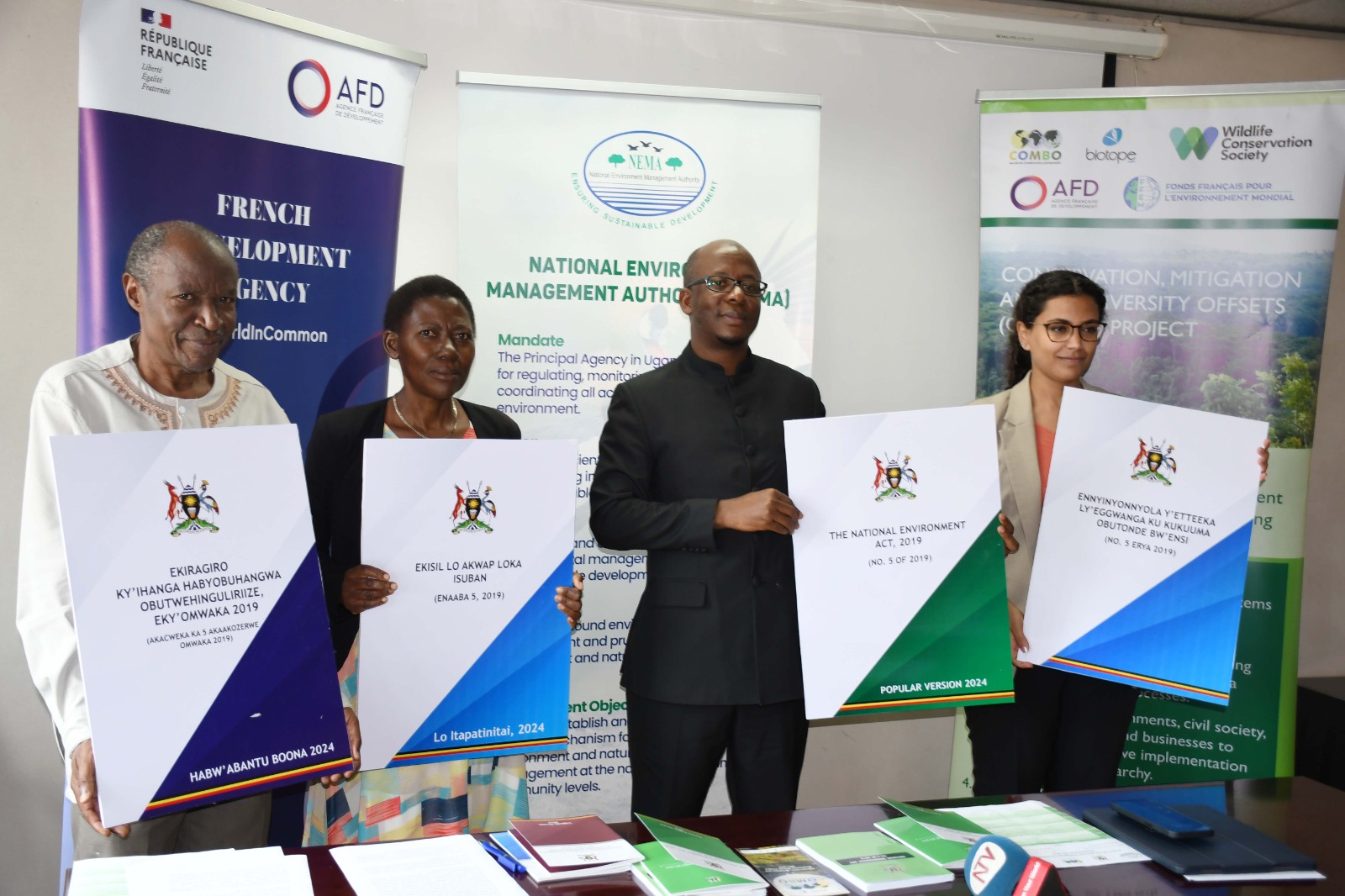
KAMPALA – The National Environment Management Authority (NEMA) has launched an abridged and translated version of the National Environment Act, Cap 181, in a bid to enhance environmental awareness and literacy among Ugandan communities.
The launch, held on September 20, 2024, at NEMA’s headquarters, was graced by NEMA Executive Director Dr. Barirega Akankwasah, accompanied by Dr. Grace Nangendo, Director Conservation Planning and Research, representing Dr. Simon Nampindo, the WCS Uganda Country Director.
The simplified “Popular Version” of the Act is designed to facilitate easy understanding of the law, highlighting major legal provisions in a clear and concise manner. This initiative is expected to bridge the knowledge gap between environmental policies and the general public.
To ensure wider accessibility, NEMA, with support from the Wildlife Conservation Society (WCS), the French Development Agency, and the French Facility for Global Environment, has translated the Popular Version into three local languages: Ateso, Luganda, and Runyoro.
“The Popular Version and its translations will significantly contribute to the understanding of environmental laws and encourage public participation in protecting Uganda’s natural resources,” Dr. Akankwasah emphasized.
NEMA acknowledges the invaluable contributions of various institutions, individuals, and stakeholders in developing the Popular Version and its translations. The choice of languages was strategic, with plans to expand translations to additional languages in the future.
The Popular Version and translations are supplementary tools, intended to enhance public awareness and compliance with the National Environment Act. They are not intended to replace the original Act nor be cited as such.
Environmental experts have long argued that Uganda’s environmental laws are often inaccessible to the average citizen, hindering compliance and effective management.
Mr. David Sempala, Executive Director of Sustainable Path Africa and Climate Reality Leader, praised NEMA’s simplified environmental laws, citing increased accessibility and broader participation in environmental protection. “This is commendable, especially during challenging times when everyone’s participation is crucial,” he emphasized.
“To maximize impact, I recommend NEMA takes a multi-pronged approach,” Sempala suggested. “This includes creating engaging short clips of key clauses, sharing them on local channels, and collaborating with community groups to amplify environmental information. Translating laws into local languages like Ateso, Luganda, and Runyoro will also ensure inclusivity.”
Sempala stressed that effective dissemination is critical. “Leveraging social media, local radio, and television will enhance public awareness. By making environmental laws accessible and understandable, we empower citizens to take ownership of environmental protection and collectively address pressing challenges.”





